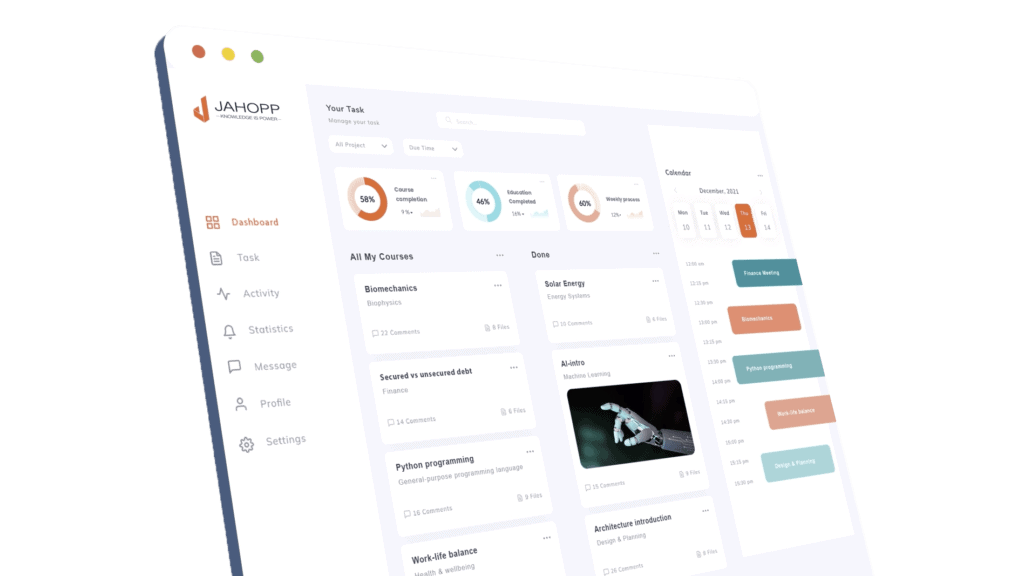LMS vs. LXP: A Closer Look at the Key Differences
Choosing between a Learning Management System (LMS) and a Learning Experience Platform (LXP) is a strategic decision for organizations aiming to enhance their learning and development initiatives. Let’s dive deeper into the crucial differences between these two platforms and how they can impact your organization’s learning strategy.
Key Factors Differentiating LXP from LMS:
LMS:
LMS platforms are typically driven by administrators and management. The choice of content and mandatory courses is usually in the hands of the HR team or learning and development staff. This makes it ideal for companies needing standardized and compulsory training, especially in compliance areas.
LXP:
On the other hand, LXPs offer greater autonomy to users. Every employee has the chance to create and share their own training paths, fostering a unique opportunity for employees to engage in creating and sharing knowledge. It’s like introducing a democratic process into learning, where every individual can contribute to the content.
LXP vs. LMS: Key Differences in Content Delivery and Structure
LMS:
LMSs typically provide structured and formal training courses. These courses are usually predefined and extend over a set period. The content is often standardized and follows a more traditional educational format with clear start and end points.
LXP:
LXP takes a different approach by integrating materials from various sources. This can include internal digital resources, content from external third-party providers, and user-generated content. This creates a more dynamic and adaptable learning environment, where users can choose what’s most relevant and engaging for them.
Enhancing Learning Through Collaboration: LXP’s Advantage Over LMS
LMS:
Traditionally, LMS platforms offer limited collaboration opportunities. Information generally flows from the administration to the learners, with little room for interaction and discussion among students.
LXP:
LXP actively promotes collaboration by allowing users to post and share their own educational material. Employees become not just passive participants in predetermined courses but active contributors to the learning process.
Skill Development: How LXP Offers Personalized Learning Paths Compared to LMS
LMS:
LMSs are effective at providing a foundational level of knowledge. They are particularly suited for broad topics where all employees need a common understanding.
LXP:
LXP takes learning a step further by enabling deeper skill training. It allows for individually tailored learning paths that focus on developing specific competencies, ideal for addressing individual knowledge and skill gaps.
Analyzing Learning Outcomes: Advanced Metrics of LXP Compared to Traditional LMS Reporting
LMS:
LMSs offer basic reports on course progress and participation. Common reports include course completions, participant progress, and assessment scores.
LXP:
LXP elevates analysis to a higher level. Using advanced technologies, including artificial intelligence (AI), LXPs can generate personalized recommendations and provide detailed insights into users’ activities. This includes engagement reports, reports on personal learning paths, social learning, and skill gap analysis.
Summary and Conclusion:
Both LMS and LXP play vital roles in the modern workplace’s learning ecosystem. The choice between the two depends on the organization’s goals, culture, and learning strategy. A combined solution, like Jahopp Learning Solution, offers the flexibility to cater to both formal and informal learning needs.
In a world where learning is no longer a one-way street but rather a dynamic, interactive process, it’s crucial to consider how technology platforms can support and enhance these new learning paradigms. By understanding the specific needs of your organization and consulting with experts in the field, you can choose the platform that best supports a culture of lifelong learning and aids your team’s success. Contact us at Jahopp today to discover how our integrated solution can transform your learning environment.

